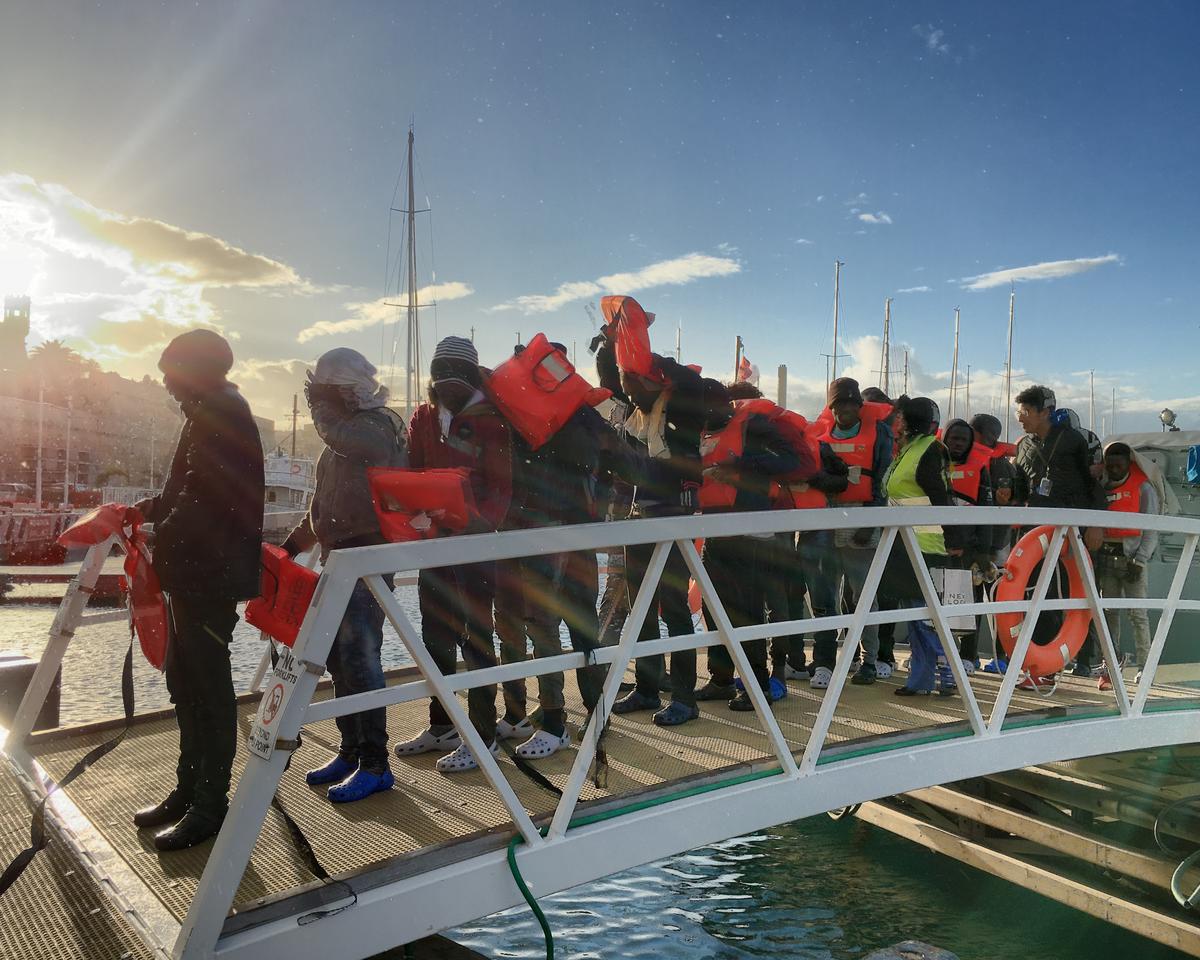As Mediterranean Sea arrivals decline and death rates rise, UNHCR calls for strengthening of search and rescue
As Mediterranean Sea arrivals decline and death rates rise, UNHCR calls for strengthening of search and rescue

45,700 asylum-seekers and migrants have reached European shores after crossing the Mediterranean Sea in the first six months of 2018, a sharp decline compared to previous years. When compared to the peak of the arrivals in the first half of 2016, the number is five times lower, and represents a return to pre-2014 averages.
UNHCR is concerned that despite this reduction, men, women and children continue to die at sea, and in proportionally larger numbers. Already in 2018, the bleak milestone of dead and missing has reached over 1,000 for the fifth year in a row, despite the lower numbers crossing to Europe. In June alone, one person died for every seven who crossed the Central Mediterranean, compared to one in 19 in the first half of this year and one in 38 in the first half of 2017.
The high loss of life illustrates the urgent need to strengthen search and rescue capacities in the region. UNHCR thanks all those involved in rescue operations, but with so many lives at stake, we reiterate the absolute importance, aligned with the obligations under the law of the sea, to permit efforts to respond to people distress at sea.
UNHCR is especially concerned about the impact of a more limited search and rescue capacity if boats are discouraged from responding to distress calls through fear of being denied permission to disembark people rescued. NGOs in particular have voiced their concerns at restrictions being placed on their abilities to conduct search and rescue as a result of limitations on their movements and the threat of potential legal actions.
NGOs play a critical role in rescuing people in distress at sea, carrying out around 40% of rescue operations from January to April this year for those disembarked in Italy - including people first rescued by military and commercial boats and later transferred to NGO vessels.
As we enter the peak season for attempted crossings, saving lives must be the key priority. Any reduction in search and rescue capacity will almost certainly lead to further unnecessary loss of life, as unscrupulous smugglers, with little regard for human life, continue to organize sea crossings using flimsy and unseaworthy vessels.
Any vessel with the capability to assist search and rescue operations should be allowed to come to the aid of those in need and subsequently allowed to disembark at the nearest appropriate safe port.
If vessels are denied permission to disembark, shipmasters may delay responding to distress calls while considering the possibility of being left stranded at sea for days on end.
UNHCR reiterates our call of recent weeks, issued together with IOM, for a collaborative, regional approach to Mediterranean Sea crossings that provides clear and predictable guidelines for search and rescue, and disembarkation.
For more information on this topic, please contact:
- In Geneva, Charlie Yaxley, [email protected], +41 79 580 87 02








